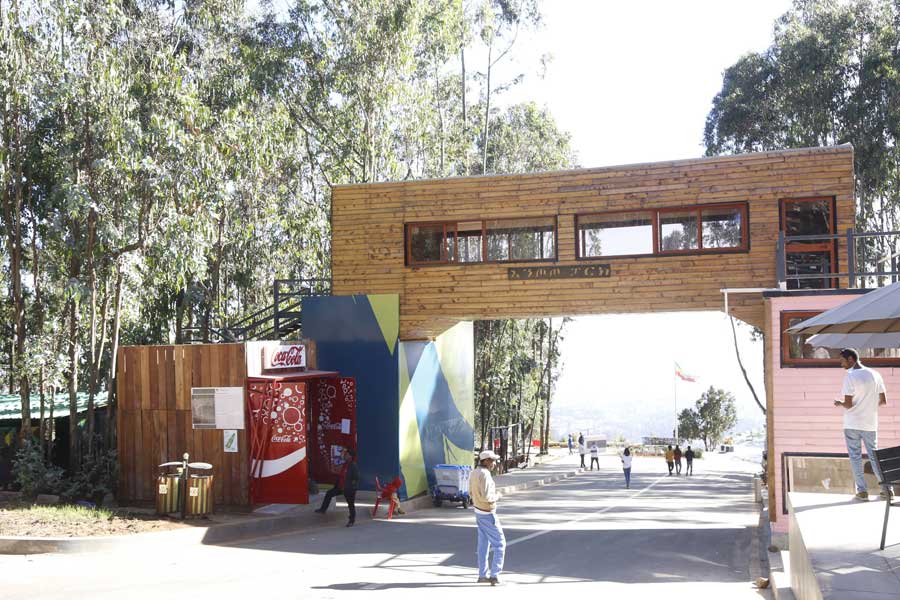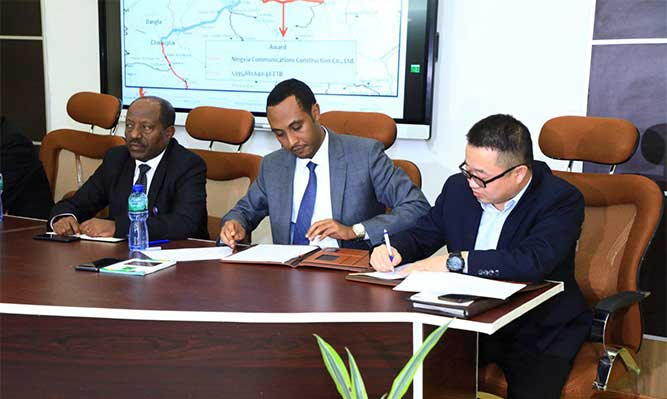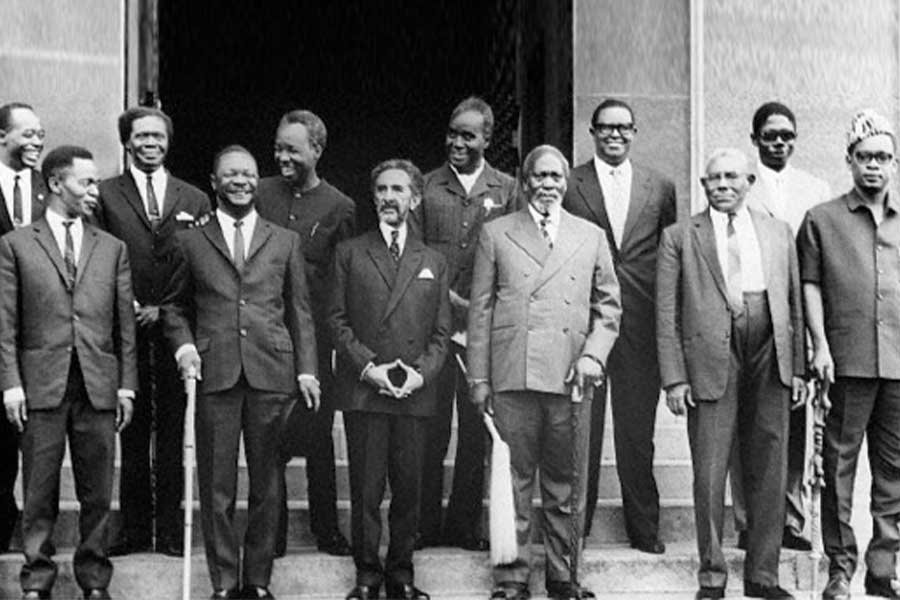
My Opinion | Nov 25,2019
May 9 , 2020.
The unsavoury position Ethiopia finds itself in today was best described by Moussa Adem, a political scholar and politician. In a recent consultative meeting called to discuss the four options the administration tabled to avoid a looming constitutional crisis, he used the allegory of a person asked to choose between a pig and a boar.
Which is the more beautiful?
It is a tricky but clever question; neither are. Moussa followed this up with yet another metaphor. This time he used the circumstances of giving birth. When a woman is in labour, there is no need to cover up parts of the body that have hitherto been taboo to show as far as those assisting in the childbirth are concerned. There is a much bigger priority which takes precedence: the well-being of the child and the mother. Hence, cultural constraints are temporarily sacrificed.
Ethiopia is in labour. The mother is the state; the child, the citizenry; and politicians, scholars and opinion leaders, the midwives. Everyone is going to have to make a sacrifice if the well-being of the state and citizens subjected to its whims are to be preserved. The method that will be used to achieve this would preferably be avoided, but that is unlikely.
For the incumbent, the bitter pill to swallow has been a constitutional interpretation.
Ethiopia’s parliament voted for this option among the four tabled by the administration of Prime Minister Abiy Ahmed (PhD) to postpone the general elections beyond the constitutional term limit of the existing legislative houses at the federal and regional states. The week before, the Legal, Justice & Administration Affairs Standing Committee was given the task of motioning parliament the ideal option from the menu: constitutional interpretation, amendment, dissolution of parliament or extending the state of emergency.
After a few days, the Standing Committee, led by Fozia Amin, recommended constitutional interpretation by the House of Federation to be the most acceptable of the options. Lawmakers voted for it in what was the most rhetorically combative session parliament ever saw.
It is a consequential decision that shows where Abiy`s administration and his legal advisors stand in their understanding of constitutional interpretations. They are pragmatists; giving precedence to stability with claims to promote the public good, a view which gives weight to alternative interpretations. They are searching for meaning in the text of the Constitution not from a conflicting or contradictory understanding of a certain clause. They want to fill a gap which is left open, arguably, by framers of the Constitution.
Abiy`s advisors are unlike the textualists, the originalists who believe in the text and structure of a constitutional document; or the intentionalists, who give primary importance to the understanding of the intentions of the framers.
Framers and ratifiers of Ethiopia`s Constitution were originalists in their worldview, judging by the most consequential decision they made by letting the House of Federation take the responsibilities of constitutional interpretations. That they deliberately chose elected representatives to do the job of interpretation instead of unelected judges for fear of the latter imposing subjective and elitist values is self-evident.
Ironically, a legislative body created to preserve constitutional originalism is now forced to carry out the work of pragmatism, which is against its DNA. It might have been a choice among bad options, but it is certainly not ideal. It is barely a fitting response to a problem that needs to be addressed both politically and constitutionally. It is a decision informed by the view that no constitution could anticipate the future, and its text can sometimes be ambiguous.
The legal scholars who advised the Prime Minister to take the matter to the House of Federation could be justified in one crucial point. They believe that interpretive powers do not merely entitle the upper legislative body to act as a dictionary, giving meaning to texts in the Constitution. The House is expected to look into the history, context and spirit of the document to settle constitutional disputes; if there are any.
It may not even have to depend on what the framers had in mind. It can interpret provisions to keep up with the progressive moral values of the day.
Thus, it is argued, interpretation alone can address the dilemma of the impossibility of holding elections upon schedule and the power vacuum this could create. Understanding the intent and the spirit of the Constitution could offer an obvious conclusion. The provision that limits the life of a legislative house to five years could be sacrificed for the sake of avoiding a power vacuum.
A constitutional body formed to advance an originalist nature of the supreme document in the land is now arm-twisted to do constitutional rewriting only to please the pragmatist demands of the administration. Lawyers who should know better are complicit in this.
Informed by the experiences of many countries that have written constitutions, framers of Ethiopia`s Constitution believed rightly that, with time, needs, priorities and understandings change. Together with the times, the Constitution would need to evolve as well.
Unfortunately, it is unclear if Ethiopia’s Constitution has explicitly given such powers to the House of Federation. It is more than interpretations it is required of, as it is demanded to insert a new provision inside a Constitution but without going through the procedure of a constitutional amendment.
A constitutional interpretation reduces the whole issue to a purely legal matter. It is now in the hands of the Council of Constitutional Inquiry, which is chaired by Chief Justice Meaza Ashenafi, president of the Supreme Court, which makes recommendations to the 112 members of the upper house.
To the contrary, this is a constitutional dilemma that smells, sounds and behaves like a matter begging for a constitutional amendment. The legitimate path to take is to amend the article that specifies the condition that certain circumstances can be used to justify extending polling dates. Invoking of this extension could be made as strict as amending the Constitution.
The framers knew that challenges might arise in the life of a Constitution that lacks not just clarity but requires re-examination. They wrote a legal document from which all laws stem from with the acknowledgement that the foundation itself might one day require modification. This was a concession they were willing to make with the caveat that amending a document meant to reflect the will of the people cannot be changed at the whims and the pleasure of an incumbent. It was not intended to be left to the House of Federation alone but should involve the engagement of the public and legislators at the regional and federal states.
No doubt, an amendment is not unproblematic. It is merely the least unpleasant of the options within the metaphorical pig and boar conundrum. The problem most constitutional scholars in the service of Prime Minister Abiy may have to do with an amendment requiring public consultations. They have also noted that this process is arduous and will take longer.
Holding public consultations is indeed problematic at a time of an epidemic, but it is far from impossible. It is not a referendum that the framers were asking for - they just wanted the public to be consulted and appropriately informed about the intents of their elected representatives. In the 21st century, this should not mean only town hall meetings and packed stadiums. Modern communications infrastructure has provided the tools for reaching out to a much larger segment of the population, specifically through social media and mass media.
These tools may not be used to hold referendums, but they are sufficient for informing and collecting opinions from the public.
That a constitutional amendment takes too long may sound like a reasonable concern; but it should not be sufficient enough to discard the proposition for an amendment. There is a reason that it is hard to do, and that is because the framers wanted an adequate amount of debate and discussion to take place before any of the foundational laws of the nation were changed. They wanted it to be justified, most importantly, in the eyes of the public. The process to the amendment is almost as necessary as the amendment itself.
PUBLISHED ON
May 09,2020 [ VOL
21 , NO
1045]

My Opinion | Nov 25,2019

Sunday with Eden | Jan 12,2019

Advertorials | Feb 12,2024

My Opinion | Apr 30,2021

Commentaries | May 11,2019

Commentaries | Jan 09,2021

Agenda | Jan 23,2021

Fortune News | Dec 07,2019

View From Arada | Jun 07,2020

Viewpoints | Jun 20,2020

My Opinion | 131967 Views | Aug 14,2021

My Opinion | 128357 Views | Aug 21,2021

My Opinion | 126294 Views | Sep 10,2021

My Opinion | 123910 Views | Aug 07,2021

Dec 22 , 2024 . By TIZITA SHEWAFERAW
Charged with transforming colossal state-owned enterprises into modern and competitiv...

Aug 18 , 2024 . By AKSAH ITALO
Although predictable Yonas Zerihun's job in the ride-hailing service is not immune to...

Jul 28 , 2024 . By TIZITA SHEWAFERAW
Unhabitual, perhaps too many, Samuel Gebreyohannes, 38, used to occasionally enjoy a couple of beers at breakfast. However, he recently swit...

Jul 13 , 2024 . By AKSAH ITALO
Investors who rely on tractors, trucks, and field vehicles for commuting, transporting commodities, and f...

Jul 6 , 2025 . By BEZAWIT HULUAGER
The federal legislature gave Prime Minister Abiy Ahmed (PhD) what he wanted: a 1.9 tr...

Jul 6 , 2025 . By YITBAREK GETACHEW
In a city rising skyward at breakneck speed, a reckoning has arrived. Authorities in...

Jul 6 , 2025 . By NAHOM AYELE
A landmark directive from the Ministry of Finance signals a paradigm shift in the cou...

Jul 6 , 2025 . By NAHOM AYELE
Awash Bank has announced plans to establish a dedicated investment banking subsidiary...